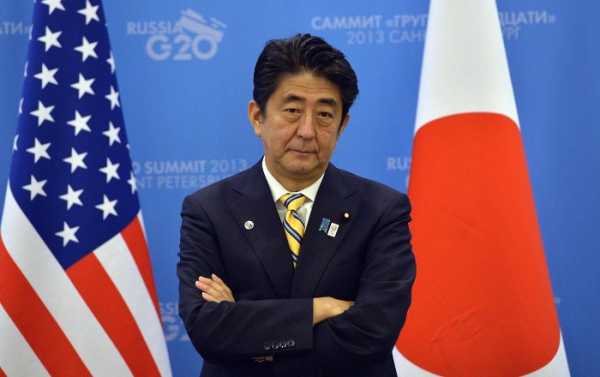
The Japanese Finance Minister has outlined his agenda at the G20 as his country begins its chairmanship at the club of the world’s 20 biggest economies.
Kristian Rouz — Japan’s Finance Minister Taro Aso is calling on the Group of 20 largest economies to reject one-sided protectionist measures in international trade. Aso’s statement comes ahead of the Japanese-American talks on a free trade deal, and Japan is seen as seeking additional bargaining chips — in the form of international backing.
In his speech before a meeting of G20 finance ministers and central bank officials, Aso said trade restrictions and unfair trading practices pose a threat to the sustainability of the global economy. The official stressed that protectionist measures impose artificial limits on the international exchange of capital, goods and services.
Aso also said unfair trading practices create trade imbalances in the form of balance sheet deficits and surpluses, which could drive inequality in economic development across the globe.
“Dissatisfaction with economic inequality is growing. There is a serious risk that we will revert to a closed and fragmented world,” Aso said.
The minister’s remarks come as Japan is seeking to maintain access to the US consumer market. The Japanese economy is heavily reliant on exports of manufactured goods, including industrial metal, cars, electronics, and hi-tech equipment.
However, as US President Donald Trump is seeking a greater presence for US companies in the Japanese market, Tokyo wants to safeguard its trade from the possible US tariffs — which Japanese officials believe Trump will not hesitate to impose, should free trade talks go wrong.
Over the past few months, Japan’s economic growth has slowed due to the international trade tensions and cooling global growth. These overseas headwinds have affected Japan’s domestic investment as well.
“Companies are delaying capex (capital expenditure) plans because they’re worried about the trade war, so Japan’s economic growth is likely to fall below its potential rate,” Hiroaki Muto of Tokai Tokyo Research Centre said.
In this light, Aso criticised tariffs and regulatory restrictions on trade, including those imposed by Japan’s trading partners. However, he didn’t directly mention the US.
“Protectionism and unfair trade practices lead to instability and perverse economic outcomes. We must renew our commitment to international cooperation and openness,” Aso told the G20 gathering.
The official’s remarks also come as Japan begins its chairmanship in the G20 this year. The island nation will host the meeting of finance ministers in Fukuoka on 8-9 June 2019, and a leaders’ summit in Osaka on 28-29 June.
Aso said his agenda as G20 chair this year would focus on upholding stability, transparency, and reciprocity in international trading relations.
While his comments are viewed by some commentators as criticism of US trading policies, Aso also took what appears to be a jab at Mainland China as well. The official warned G20 members against ‘competitive devaluations’ — or devaluations of their respective national currencies to boost exports.
China has long been suspected of manipulating its FX rate, although the Trump administration stopped short of labelling China a ‘currency manipulator’ last year.
Aso also said Japan in seeking to erase trading imbalances across the globe, which somewhat echoes Trump’s rhetoric. Japan has been running a significant trade surplus with the US for decades, and the Trump administration is seeking a trade deal with Tokyo to reduce or erase such imbalances.
The ongoing Sino-American trade talks, for their part, also fall in line with Aso’s agenda at G20, meaning the international community is gradually beginning to embrace Trump’s approach to handling foreign trade, albeit not without criticism.
Sourse: sputniknews.com






